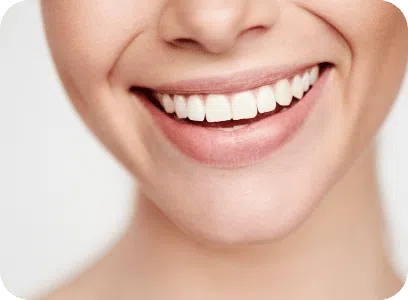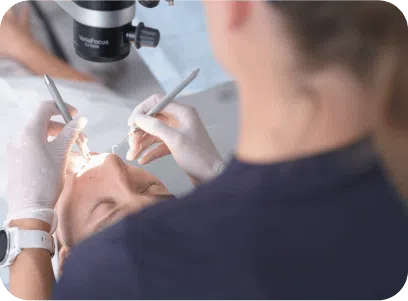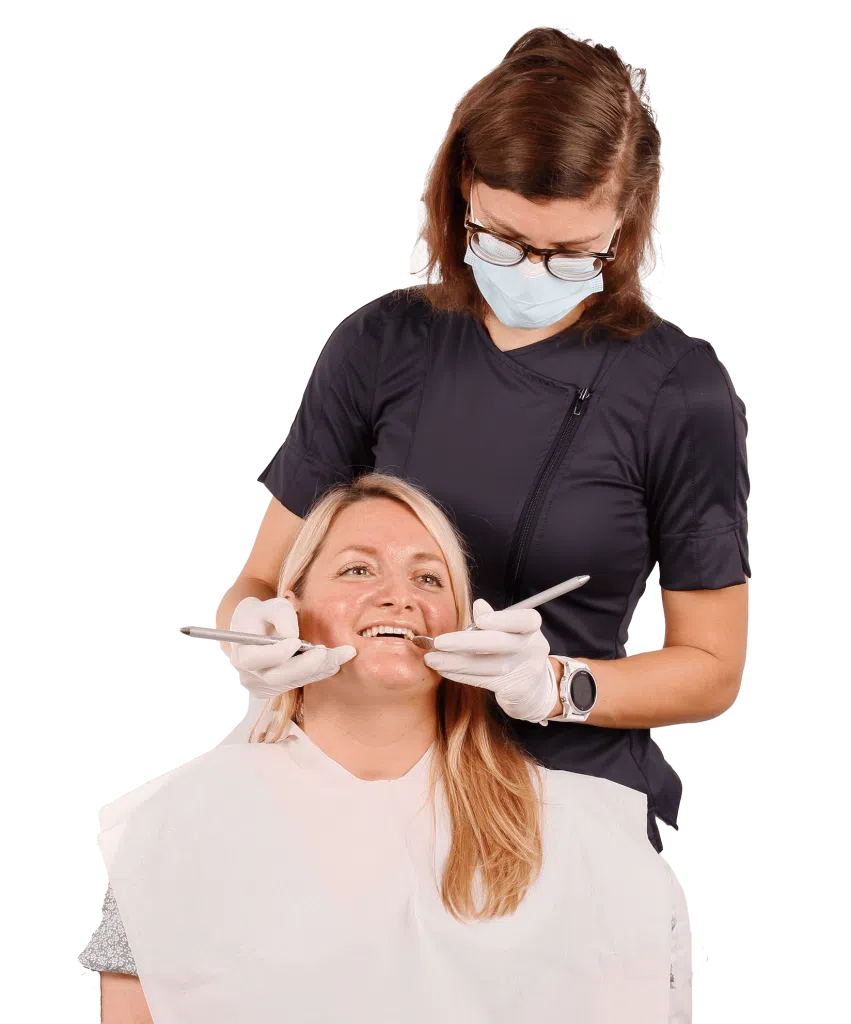Nutrition counselling
Your diet significantly impacts the health of your teeth and oral cavity. Frequent consumption of sugar and carbohydrates greatly increases the risk of dental caries. This doesn’t mean you have to completely give up sweet foods, but try to consume them as rarely as possible.

Guidelines and advice
Our professionally trained staff will provide you with nutritional advice that is important for the health of your oral cavity and the maintenance of strong teeth and gums.
Diet analysis
We will analyze your diet and lifestyle with you, offering personalized advice and meal plans to improve your oral health.
Monitoring progress
Our dentists will track your progress according to set goals and adjust dietary advice based on the results achieved.
Sweet foods
We recommend consuming sweet foods with your main meals and avoiding sweet snacks between meals. Divide your meals so that you eat 5-6 times a day. Remember that anything you eat counts as a meal, except for water and unsweetened drinks.
Snacks
If you can't avoid snacks, we recommend foods that inhibit bacteria in dental plaque, such as peanuts, almonds, sunflower seeds, and pumpkin seeds. Dairy products without added sugars, like hard cheeses, are also less harmful.

How does the nutritional counselling work?
Individual dietary analysis
We will begin by reviewing your eating habits to determine how they affect your oral health.


Menu adjustment advice
Based on the analysis, we will advise you on how to adjust your diet to include foods that are beneficial for the health of your teeth and gums.
Monitoring and adjusting
Our goal is to help you achieve long-term and sustainable dietary changes to maintain the health of your teeth and gums. After the counseling session, you will have the opportunity for regular follow-up appointments to assess your oral health and progress.
Experienced team of experts
Our experienced team of dentists brings extensive knowledge and expertise, ensuring safe, effective, and individually tailored nutritional counseling.
Follow-up and support
Our team will provide comprehensive follow-up and support throughout the entire process to achieve the desired outcome.
Patients love us
... and their new smiles! 🙂

Modri zob Nova Gorica

Modri zob Kranj

Modri zob Kranj

Modri zob Kranj

Modri zob Nova Gorica

Modri zob Nova Gorica
Answers to frequently asked questions
Which drinks to avoid?
Acidic foods and drinks also promote caries development and enamel dissolution. Pay attention to all carbonated drinks, fruit juices, and lemonades. Acidic drinks include fruit shakes, beer, black coffee, black tea, and wine. Acidic foods include all citrus fruits, apples, berries, and any products with added vinegar (salad dressings, ketchup, etc.).
After consuming acidic foods or drinks, we recommend rinsing your mouth with water and waiting at least an hour before brushing your teeth to allow the pH of your saliva to normalize and the enamel surface to remineralize.
How does diet affect teeth whitening?
A proper diet can positively impact teeth whitening and help maintain their natural color.
Do sweets cause cavities?
Yes, sweets such as candies, cookies, and carbonated drinks can cause cavities. The sugars in these foods and drinks convert into acids in the mouth, which can damage the enamel and lead to cavities. We recommend limiting sweet snacks and brushing your teeth regularly after consumption.
How can diet affect gum health?
Diet plays a significant role in gum health. A lack of nutrients, such as vitamin C and vitamin D, can lead to gum inflammation and disease. Foods rich in antioxidants and fiber can contribute to healthy gums. A healthy and balanced diet rich in fruits, vegetables, and dairy products can help maintain healthy gums.
Are acidic drinks harmful to teeth?
Yes, acidic drinks like carbonated drinks and energy drinks are harmful to teeth. The high acidity of these drinks can dissolve tooth enamel, increasing the risk of cavities. We recommend limiting acidic drinks and choosing water or milk as healthier alternatives.
How can diet affect teeth whitening?
Diet can influence natural teeth whitening. Foods rich in phytonutrients, such as apples, leafy greens, and nuts, can help remove stains from teeth. Additionally, avoid foods and drinks that can stain teeth, such as coffee, tea, red wine, and acidic drinks.
Are there dietary supplements to improve oral health?
Yes, there are dietary supplements that can contribute to better oral health. For example, supplements containing vitamin C, vitamin D, and calcium can support healthy teeth and gums. However, the best way to ensure the necessary nutrients for oral health is through a diverse and balanced diet.
You might also be interested in...




